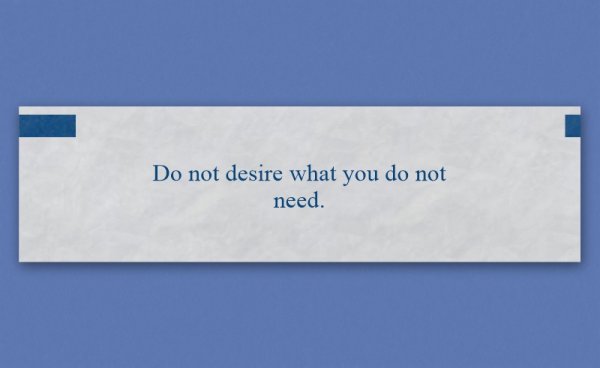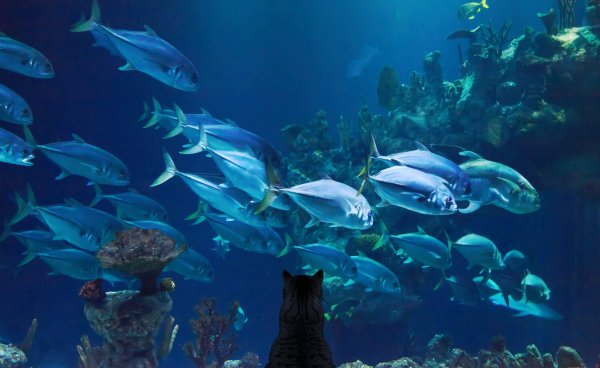Fortune Cookie Friday: Living In Your Comfort Zone
There are only a few things that we need in this world. If we want to survive, we require water, food, and shelter. Clothing is optional, but it helps in many circumstances, so we need it as well. Beyond the necessities of life, everything else is an upgrade.

Even when it comes to food, water, and shelter, a bare minimum will suffice. We would survive longer with healthy food, clean water, and secure shelters. Most of us would prefer a little extra for comfort. Comfort, mistakenly seen as a desire, is very important for survival and living.
Before I continue, I want to point out that surviving is not the same as living. For the purpose of this article, surviving is the denial of death while living is embracing life. We need things to survive and want things to live. Our needs in life are usually physiological. While on the other hand, our wants are more psychological.
Psychologist Harry Harlow conducted some famous experiments in the 1950s on rhesus monkeys that demonstrated how vital our wants are to our psychological health. Called the “Monkey Love Experiments,” Harlow studied two groups of infant monkeys separated from their mothers a few hours after birth. The young animals were “raised” by two kinds of surrogate monkey mother apparatus, both equipped to dispense milk. He made one surrogate out of bare wire mesh. The other was a wire surrogate covered with soft terry cloth. The young continued to choose the terry cloth version over the wire, even when the milk was not available on the terry cloth covered surrogate.
When Harlow studied two groups of young monkeys raised without the choice of surrogate, they grew physically at the same rate. Those that developed on the soft mother were more physiologically stable and calm in adverse environments than those clinging to a wire mother.
Although his experiments probed the nature of love and prioritizing psychological over biological parenthood, Harlow showed that needs and wants are necessities to survive. We need the nourishment and protection of love and comfort, as well as food and water.
So, where does that leave us with today’s fortune? Let’s focus on the word “desire.” A desire is an inclination toward the things we want; it is the craving to apprehend our wants. Desire can be good or bad depending on what you want and how much you control it, or it controls you.
There is a certain amount of food, clothing, love, etc. that we need to live a fulfilled life. We use our desires to reach a particular equilibrium in life that brings us joy without causing harm to ourselves or others; a comfort zone, if you wish. If we don’t find it, we are left wanting. If we go beyond it, it becomes destructive.

This lifestyle doesn’t mean we should not strive to be better. Living in our Comfort Zone is more than finding a safe space; it requires that we keep our desires in check. It’s a place where we reach for our goals with a controlled fortitude. Taming our desires takes trial and error, learning from others, and self-awareness. It’s easy to find ourselves trapped by the very desires we wielded in the search for comfort. When this happens, we will never feel comforted and continue to pursue a particular direction without success.
One reason we fall into this trap is that we don’t recognize what we have when we have it.
If we want to apply the brakes on runaway desires, we must live in the moment, enjoy what we have, and share it with others. If we don’t, we will only bring physical and psychological pain upon ourselves. We can easily recognize this attitude as one of the seven deadly sins, or vises: pride, envy, gluttony, lust, anger, greed, and sloth. Although, it can take someone else pointing it out before we realize what we’ve become.
We should not lose hope, though. Nature always seeks equilibrium, and we can find it if we remain steadfast and open-minded. Reaching our Comfort Zone is not an easy task, but with a little practice, we can rest assured that we will achieve that goal.




